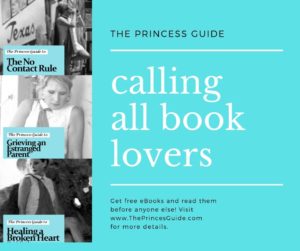By the time you read this post, you have probably spent the entire Thanksgiving Day with drunk Uncle So-and-so, and you may be wondering if he will ever get sober.
In this Flashback Friday post we’re exploring the concept of hitting rock bottom and making positive changes in life. As I’ve said many times before, change is not easy — if it were then everyone would practice it on a regular basis — but the rewards and benefits of positive change are well worth the struggle during the process. You don’t have to hit rock bottom and have everything in your life fall to ruin before you decide to make those positive changes. Let’s explore this topic …
I recently took a long road trip, and that gave me a lot of time to think. (When I’m holding on to the steering wheel for six hours straight, that’s a long enough trip for me to consider it a long road trip!) Surprisingly, I was thinking about substance use and the people I know who have been hurt by it (both the users and the ones who love them).
I know substance users who have been jailed, sentenced to prison, had their children taken away by the state, lost jobs, destroyed their marriages and on and on. In one particular case, I knew of someone who lost her children and many years later died of a drug overdose before she could make positive changes even though she had many chances to initiate change. I wonder if these people ever hit rock bottom, repent and try to make things right with those they have hurt while imitating positive change in their lives?

My best friend believes that often men do not hit rock bottom after they hurt girlfriends and wives so much that the women leave. She says the rock bottom comes from their children. I wasn’t so sure about her theory until I saw it happen to a man I know. It appeared that he was in the contemplation phase of change when his relationship with his children improved. So, I’m guessing that the daily drinking didn’t stop and he didn’t enter into a treatment program, but it looked like the children leaving the relationship with him was causing him to take a serious look at treatment.
When I was thinking about these people who don’t seem to ever hit rock bottom, I saw a picture in my mind of someone falling and falling and falling in a deep, deep pit.
I believe when we do things that destroy out bodies, destroy our lives, destroy our brains, destroy our relationships, destroy our reputations and destroy those around us, we are being influenced by demonic forces that are deployed to carry out Satan’s mission to “steal, kill and destroy” (John 10:10).
I know someone who seems like a good, genuine person who loves God on the surface, but his addiction to alcohol has destroyed his life. I’ve only known him to be clean and sober while in jail (and that’s a place where he’s spent a lot of time). It’s really hard to watch anyone go through life in the chains of substance use, but they are the only ones who can change it. I was told by a professor that substance users typically don’t decide to seriously work a recovery program and make the positive changes needed until they have been in rehab about EIGHT times.
Treatment and recovery programs are wonderful tools in becoming clean and sober, but if you don’t deal with the root cause of why you use and create a heart change, you will fall back into destructive patterns. Dealing with those deep issues can be very scary because we’ve lived with them for so long and coped by using substances to medicate our broken hearts and crushed spirits that it feels “normal,” but freedom from being controlled by substances feels so much better!
We are not guaranteed tomorrow (just like the person I mentioned who died of an overdose before she made positive changes). The “magic” of the present moment is that it’s the gift of being able to institute change right now. Are you ready to change for the better?
You can find these Flashback Friday blogs posted every Friday. If you want to know more how to have successful relationships and peace of mind, you can get a free PDF sample chapter of “The Princess Guide to Healing a Broken Heart” by filling out the form in the sidebar on this page.




